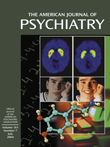Evidence That Methylphenidate Enhances the Saliency of a Mathematical Task by Increasing Dopamine in the Human Brain
Abstract
OBJECTIVE: Methylphenidate is the most commonly prescribed drug for attention deficit hyperactivity disorder (ADHD), yet its therapeutic mechanisms are poorly understood. The objective of this study was to assess if methylphenidate, by increasing dopamine (neurotransmitter involved in motivation) in brain, would enhance the saliency of an academic task, making it more interesting. METHOD: Healthy subjects (N=16) underwent positron emission tomography with [11C]raclopride (dopamine D2 receptor radioligand that competes with endogenous dopamine for binding) to assess the effects of oral methylphenidate (20 mg) on extracellular dopamine in the striatum. The authors compared the effects of methylphenidate during an academic task (solving mathematical problems with monetary reinforcement) and a neutral task (passively viewing cards with no remuneration). In parallel, the effects of methylphenidate on the interest that the academic task elicited were also evaluated. RESULTS: Methylphenidate, when coupled with the mathematical task, significantly increased extracellular dopamine, but this did not occur when coupled with the neutral task. The mathematical task did not increase dopamine when coupled with placebo. Subjective reports about interest and motivation in the mathematical task were greater with methylphenidate than with placebo and were associated with dopamine increases. CONCLUSIONS: The significant association between methylphenidate-induced dopamine increases and the interest and motivation for the task confirms the prediction that methylphenidate enhances the saliency of an event by increasing dopamine. The enhanced interest for the task could increase attention and improve performance and could be one of the mechanisms underlying methylphenidate’s therapeutic effects. These findings support educational strategies that make schoolwork more interesting as nonpharmacological interventions to treat ADHD.



